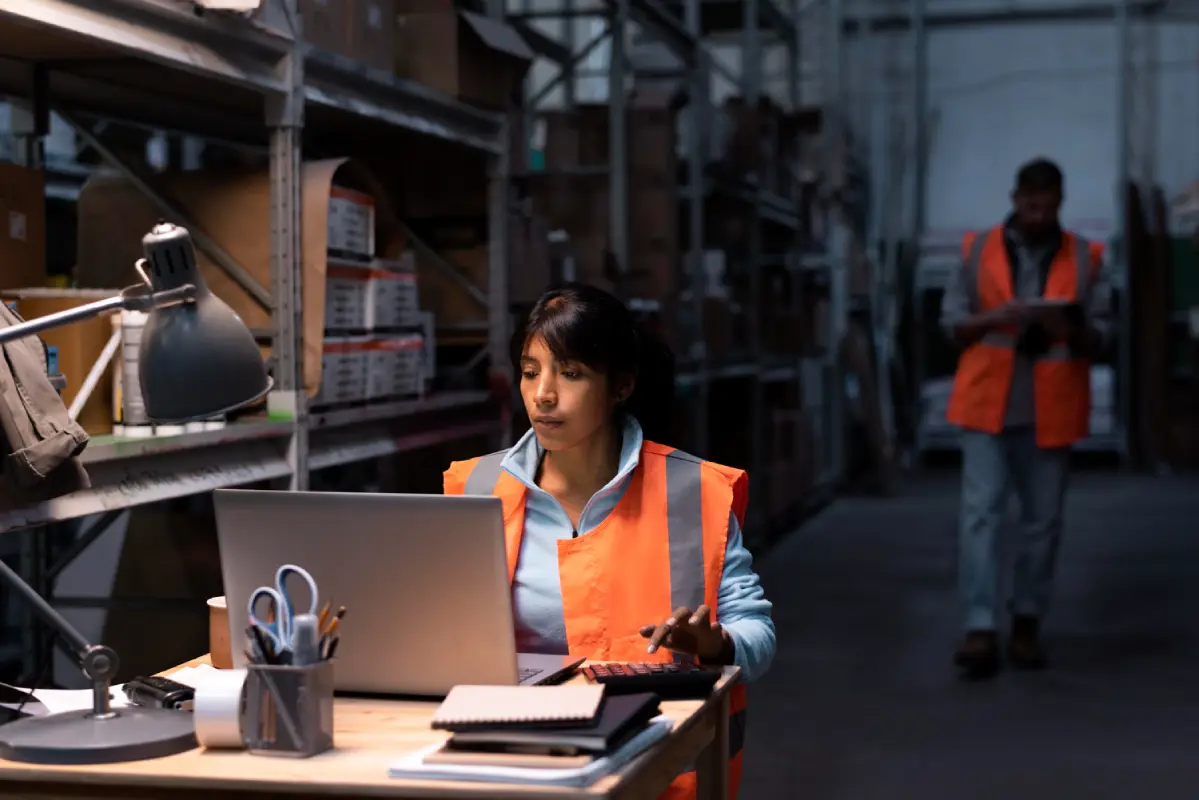Digital tools are revolutionizing manufacturing accounting services by streamlining complex financial processes and improving accuracy. Automation, cloud computing, and advanced analytics enable real-time inventory management, production expense tracking, and cash flow monitoring.
These technologies reduce manual errors, improve reporting speed, and provide deeper financial performance insights, enabling better decision-making. As the manufacturing industry faces increasing pressure, adopting digital accounting solutions transforms traditional accounting into a strategic function for growth and efficiency.
Digital transformation is rapidly reshaping the landscape of manufacturing accounting. As manufacturers seek to increase operational efficiency and gain a competitive edge, advanced technologies fundamentally alter how financial data is managed and utilized.
Leveraging innovations like automation, cloud computing, analytics, and blockchain has become crucial for manufacturers looking to optimize their accounting functions. Companies seeking a strategic edge often turn to outsourced accounting in Chicago, IL, to seamlessly implement and manage these digital solutions, driving better outcomes and financial clarity.
This surge in digital adoption does more than streamline everyday accounting—it paves the way for data-driven decisions, better collaboration, and heightened security. By embedding the latest digital tools into their accounting processes, manufacturing firms are efficiently overcoming traditional barriers such as data silos, manual errors, and delayed reporting. The result is not only improved accuracy but also the ability for finance teams to add greater strategic value to their organizations.
Contents
Automation and AI in Accounting
Automation and artificial intelligence (AI) are revolutionizing manufacturing accounting by handling repetitive and time-consuming tasks such as data entry, invoice management, and reconciliations. Instead of pouring hours into manual calculations and entering numbers into spreadsheets, finance teams can rely on AI-driven software that processes transactions at scale with minimal errors.
This shift increases efficiency and sharpens accuracy, fundamentally changing the accountant’s role from recordkeeper to strategic advisor. With more time, financial professionals can focus on value-added activities like analyzing trends, developing forecasts, and driving business growth. Businesses using AI in finance report substantial cost and time savings.
Furthermore, these digital tools improve compliance by automatically updating tax codes and regulatory requirements. Cloud-based platforms enable real-time collaboration across departments and locations, enhancing transparency and decision-making. Predictive analytics integrated into accounting software helps identify potential financial risks before they escalate. AI and automation empower manufacturing firms to operate more agilely and competently in a fast-paced market.
Cloud-Based Accounting Solutions
Cloud technology has transformed how financial information is stored, accessed, and shared in manufacturing. Unlike traditional systems tethered to physical offices, cloud-based accounting platforms allow teams to work from anywhere and access real-time data around the clock. This ensures that everyone—from plant managers to finance directors—remains on the same page, even when operations span multiple sites or countries.
Security and scalability are two major benefits of cloud adoption. Financial data is routinely encrypted and backed up, minimizing risk during outages or cyber incidents. Moreover, cloud solutions can seamlessly expand alongside business growth, supporting new product lines or markets with little IT burden. This flexibility is critical for manufacturing businesses in today’s fast-paced and interconnected industry.
Advanced Analytics and Machine Learning
Data analytics and machine learning are revolutionizing manufacturing accounting by enabling organizations to identify inefficiencies, forecast future performance, and optimize inventory. These capabilities allow cost management, inventory optimization, and cash flow forecasting with greater confidence.
Machine learning models can also identify potential risks early, enabling proactive adjustments. Integrating these analytics into regular reporting cycles can lead to smarter, data-backed business decisions for manufacturers.
Additionally, advanced analytics help uncover hidden patterns and trends that traditional methods might miss, providing a competitive edge. Real-time data visualization tools make complex financial information more accessible and actionable for decision-makers. As these technologies evolve, manufacturers can expect even greater precision and agility in their accounting practices.
Blockchain for Financial Transparency
Blockchain technology enhances transparency and security in manufacturing accounting, offering a trustworthy way to record and verify financial transactions. With a decentralized, tamper-resistant ledger, each transaction is traceable and cannot be altered without consensus. Blockchain is particularly valuable for audit trails, procurement, and cross-border payments, where clarity and trust are essential.
By minimizing the risk of data manipulation and fraud, blockchain instills confidence across entire supply chains and among auditors. Regulatory compliance is also streamlined, as every transaction is logged with a time-stamped record, reducing the effort and cost of financial reporting and verification.
Enhancing Cybersecurity in Accounting
As the adoption of digital accounting tools increases, so does the risk of cyber threats targeting sensitive financial data. Manufacturing businesses must prioritize comprehensive cybersecurity strategies against malware, ransomware, and data breaches. Best practices include regular system audits, real-time monitoring, multifactor authentication, and worker training on identifying potential threats.
Building a security-first culture across the accounting team is essential. Cybersecurity needs to be continually updated as threats evolve, ensuring there are no weak points in the data ecosystem. Partnering with trusted cybersecurity vendors can also provide specialized expertise and rapid response capabilities. Data encryption and secure backup solutions protect critical financial information from loss or unauthorized access. Reviewing and updating access controls helps minimize internal risks and maintain regulatory compliance.
Overcoming Challenges in Digital Transformation
Digital transformation in manufacturing accounting comes with its share of hurdles. Change management is often the biggest roadblock, as staff may hesitate to adopt new technologies or workflows. Overcoming this resistance requires thoughtful communication of digital benefits and comprehensive training programs that address knowledge gaps and instill confidence.
Staggered implementation is also practical—introducing technologies gradually gives teams time to adapt and learn, preventing them from becoming overwhelmed. Investing in upskilling ensures smoother transitions and empowers employees to leverage new tools to their fullest potential. With clear leadership and ongoing support, manufacturers can unlock the transformative potential of digital accounting.
Integrating leading-edge digital tools empowers manufacturers to modernize their accounting practices, achieve greater operational efficiency, and gain deeper insight into their business performance. Those who embrace the digital shift are better prepared to navigate change, manage risk, and position themselves for long-term growth.



